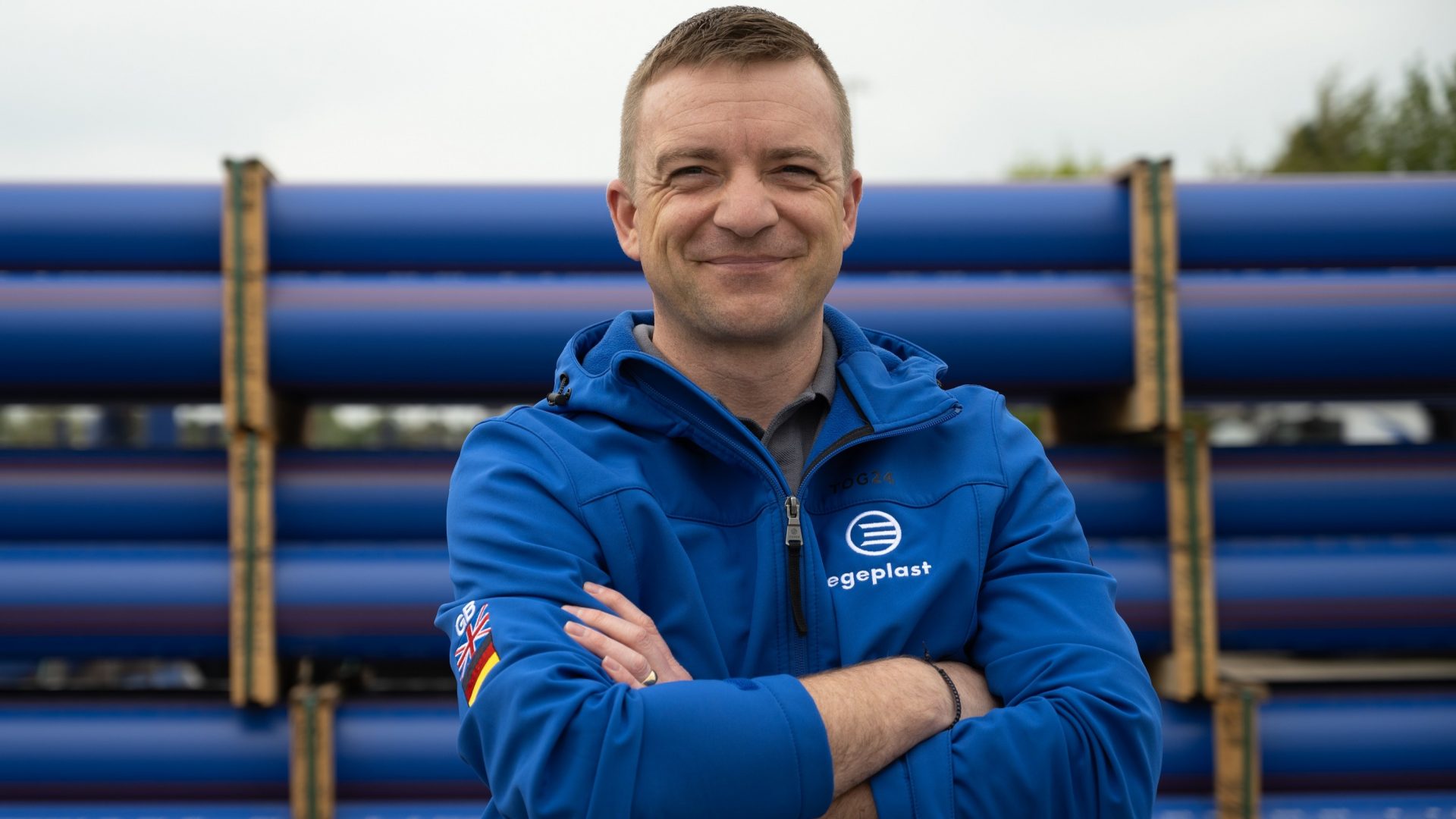Water loss from pipe leaks continues to be a major issue for water companies and society as a whole. Progress has been made towards addressing the issue with industry wide leakage reduced by 11% since 2017-18[i] but much still needs to be done.
Here Egeplast UK National Sales Manager, James Roebuck, highlights the significant impact that automated, continuous pipe leak detection systems have and argues that they are an essential part of any water pipe network.
According to OFWAT’s latest ‘Service Delivery Report’[ii] an incredible 3,112 megalitres of water are lost every day in the UK due to leaks. If this sounds like a lot of water, it is. It would be wrong to think that the water industry is not working hard to reduce this figure though.
OFWAT has challenged the sector to reduce leakage by at least 16% in the five-year period up to 2025 and by 50% by 2050. Three quarters of water companies are successfully meeting their annual targets in this regard with particularly strong progress made by what OFWAT calls the star performers: Anglian Water, Wessex Water, Bristol Water and Portsmouth Water. Others though are, perhaps understandably, lagging behind.
The problem of water leakage is far from simple to solve as water companies seek to upgrade Victorian pipe networks while having to allocate significant funding and resources to leak management amongst other things. Against this backdrop, technology and the use of automated pipe monitoring systems will undoubtedly have a critical role to play.
Historically, water companies first found out about a leak when they were notified of supply issues, or they received phone calls about relating flooding. Being reliant on this notification system meant that by the time a leak was discovered a large volume of water had been lost, the leak was probably causing disruption to supply or at least some issues in the local area, and the problem was already a critical incident which needed to be dealt with as a matter of urgency. Then of course, there is the problem of locating the source of the leak. Without a monitoring system, this is far from an easy or quick process.
Today technology can make leak management a much simpler, less disruptive and more cost-effective process to manage. At egeplast, we provide pipe systems which include automated continuous monitoring systems so if a leak does occur, the water company is notified immediately, and the leak can be located quickly and easily.
Importantly, continuous monitoring systems such as egeplast’s 3L Leak Control system also provide information to water companies instantly, enabling them to minimise damage and resolve any issues, preventing significant outages for customers. Monitored products also stop the need to wait until there is a significant burst or an obvious major leak and this helps protect the environment from any unexpected ‘spillages’ from sewage or other contaminated fluids which are being transported.
Which begs the question, why aren’t they specified more often in new pipe systems? In the short term, they increase the cost of a new pipe system but in the longer term they deliver significant cost savings relating to leak rectification and minimise disruption for customers.
Perhaps most importantly by specifying such systems, we would be able to better protect a precious resource which is likely to become scarcer in the decades to come.
Summer rainfall is expected to decrease by approximately 15% in England by the 2050s and by up to 22% by the 2080s[iii]. Against this backdrop, a year ago this month Sir James Beven – Chief Executive of the UK’s Environment Agency – called for an increased focus on water quantity and highlighted the importance of taking measures to ensure we avoid the point where water demand outstrips supply. This is particularly important when you consider that the general public do not yet understand the need to change their water usage habits and that by mid-2045 the UK population is expected to grow by around 5%[iv].
As we’ve seen this summer, this is already creating pressure on our water supply network and, in response, water companies are now drawing water from bore holes and ground water sources, the environmental impact of which is currently unknown.
A focus on minimising leakage will, of course, only solve our longer-term supply problems if it’s undertaken in conjunction with other measures such as the creation of new reservoirs. The last reservoir to be built in the UK was Carsington water in 1991 but water companies are now planning the creation of new reservoirs across the country.
If we are to protect our water supply and our environment for future generations, however, we would argue that future-proofing the water pipe network by specifying automated continuous monitoring systems would be a relatively small but very worthwhile step towards reducing pipe leakage and mitigating future supply issues.
[i] OFWAT website – https://www.ofwat.gov.uk/ofwat-reveals-progress-on-water-industry-leakage-performance/
[ii] OFWAT ‘Service Delivery Report November 2021 – https://www.ofwat.gov.uk/wp-content/uploads/2021/11/Service-Delivery-Report-2020-2021.pdf
[iii] UK Gov https://www.gov.uk/government/news/lack-of-water-presents-existential-threat-says-environment-agency-chief



